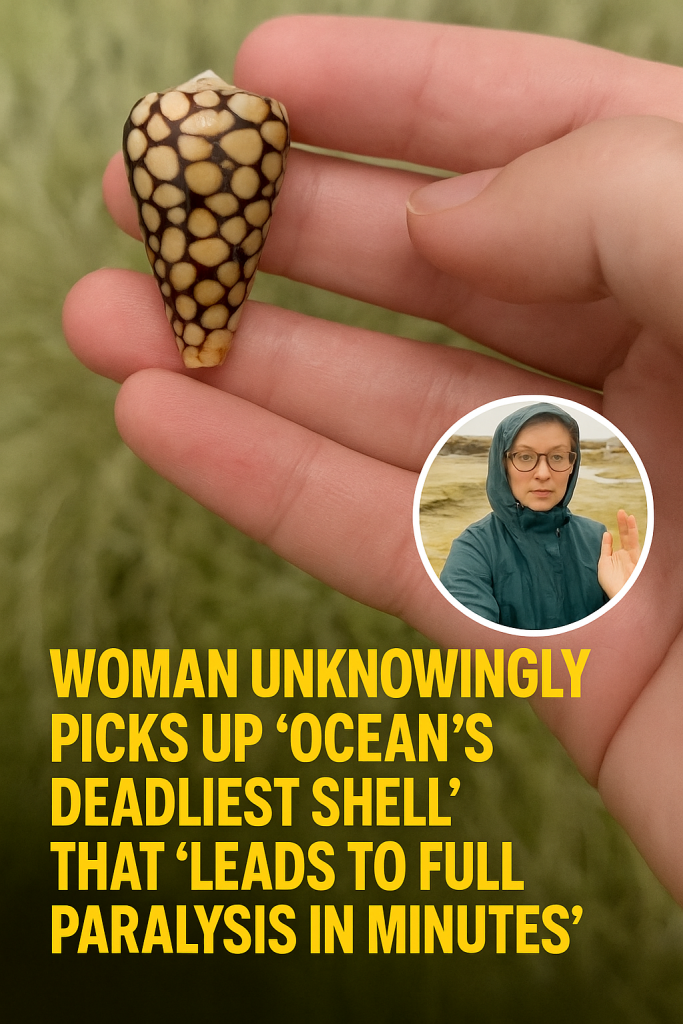A woman’s ordinary beach walk turned into a terrifying ordeal after she unknowingly picked up one of the ocean’s deadliest shells, exposing her to a toxin estimated to be up to 10,000 times more potent than morphine. Within minutes, she experienced full-body paralysis, a chilling reminder of the hidden dangers lurking in marine environments.
The incident, reported in early 2024, highlights the extreme risk posed by certain marine creatures carrying highly potent neurotoxins. The woman, whose identity remains private, found the shell washed ashore on a remote beach while on vacation. Intrigued by its unusual appearance, she picked it up, triggering the rapid onset of paralysis symptoms.
Experts explain that the shell likely belonged to a species containing conotoxins—powerful neurotoxins produced by cone snails. These toxins interfere with nerve signal transmission, causing paralysis that can progress shockingly fast. Some conotoxins are known to be among the most potent natural substances on Earth, far surpassing common painkillers like morphine in their strength.
“Conotoxins act by blocking nerve channels, effectively stopping communication between nerves and muscles,” said a marine toxin specialist. “Even a small amount can cause immobilization, respiratory failure, and potentially death if not treated promptly.”
In this case, the woman’s paralysis developed within minutes, leaving her unable to move or speak. Fortunately, she was quickly transported to a medical facility where supportive care, including respiratory assistance, was provided. Although there is no direct antidote for many cone snail toxins, rapid medical intervention can save lives by sustaining vital functions until the toxin’s effects subside.
This harrowing event has sparked renewed warnings for beachgoers and marine enthusiasts. Despite their small size and often beautiful, colorful shells, certain species pose a significant threat to humans. Public health officials emphasize avoiding contact with unknown shells, marine snails, or brightly patterned sea creatures, especially in tropical and subtropical waters where cone snails are more prevalent.
Marine safety experts urge people to enjoy ocean environments cautiously. “Admire marine life from a safe distance. Never handle creatures or shells unless you are absolutely certain they are harmless,” an official advised. “The ocean is stunning, but it’s also home to some of the most potent toxins known.”
This incident is a stark reminder of nature’s unpredictability. The toxin’s potency—up to 10,000 times stronger than morphine—underlines the delicate balance needed when exploring natural habitats. As researchers continue to study conotoxins for their potential medical applications, their danger to unprepared individuals remains very real.
The woman’s experience stands as a cautionary tale: beautiful doesn’t always mean safe, and a moment of curiosity can lead to life-threatening consequences. Experts encourage spreading awareness and promoting education around marine toxicology to prevent future tragedies.
As beach season approaches in many parts of the world, this event reinforces the need for vigilance, respect, and knowledge when venturing into the vast, and sometimes perilous, beauty of the ocean.



